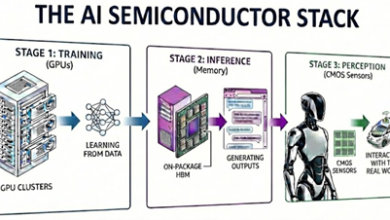
Infinity Constellation, the AI-native holding company born within Invisible Technologies, is challenging both the traditional VC model and the classic incubator playbook by directly building, staffing and scaling multiple startups in the professional service industry. With $17 million in new funding and eight companies already live, the team says it can spin up new ventures in weeks rather than months, cutting through the red tape that typically slows early-stage companies.
“Infinity is neither just a check writer nor a mentor network,” explains CEO Brennan Pothetes. “We’re an operating holding company that codifies repeatable processes, entity formation, equity plans, product development, so every new company can launch at startup velocity.”
Massive Market Still Largely Manual
Infinity zeroes in on the $2 trillion-dollar service markets still mired in manual workflows: recruiting, regulatory approvals, back-office finance, creative services and SMB operations. Each vertical undergoes a rapid scoping sprint with domain experts and prospective customers to size pain points, estimate automation ROI and validate willingness to pay. Only when metrics like time saved, cost per user and total addressable users clear strict hurdle rates does Infinity greenlight a new portfolio company.
“We target the service industries where a handful of AI engineers can unlock 10x efficiency gains,” says Pothetes. “That focus accelerates product-market fit and drives revenue within three months of founding, compared to the 12–24 months typical in legacy businesses.”
Lessons From Cohort One
Infinity’s first eight companies have delivered early wins, and taught hard lessons. Vertical focus and early customer pilots proved critical for tuning each product. But the team also learned to avoid over-building non-core features before validating a minimum viable product. Those insights now feed an even tighter “pilot-first” rule for every subsequent launch.
Infinity’s first batch of companies include:
- Supernal: AI Employees for SMB
- Everest: AI augmented executive assistance
- Zero Hiring: End-to-end AI-powered Recruitment Process Outsourcing
- Labrynth: AI Processes for Smarter, Faster Regulatory Approvals
- Unlimited: AI-powered back office automation for financial services
- Radiance: Digital design agency powered by a Creative OS that evolves with every move you make.
- Ascendancy: AI Platform Network for business development and executive recruiting
- Lightning: AI-enabled educational platform
The company gave an example from Labrynth, its AI regulatory startup led by seasoned entrepreneur Stuart Lacey, who helped a U.S. nuclear energy startup streamline its regulatory workflows across permitting, licensing, and engineering. Over a three-month period, employees reported a 42% average efficiency gain, leading to $103,500 in monthly savings and a 12.9x ROI. Here’s what the CEO of the nuclear startup said of their collaboration: “Labrynth is turning it into our competitive advantage. By closing our approval gap early, we expect to unlock new revenue streams months ahead of industry standards”
Aligning Founders and Funding
Unlike typical incubators, Infinity only taps seasoned operators, entrepreneurs who’ve built at scale and demand full autonomy. In return, founders gain shared AI assets, back-office support and a simple value proposition: “Focus on strategy and product, while we handle infrastructure, legal and fundraising.” Incentives are aligned via equity stakes and performance-based compensation tied to ARR and margin milestones.
Capital is raised both at the holdco level, $17 million to date and the portfolio companies level as the individual businesses hit meaningful scale (roughly $1–2 million ARR). The portcos can tap additional holdco reserves or pursue outside Series A rounds, giving founders flexibility to maintain ownership or bring in specialized growth investors.
Looking Ahead
Over the next three to five years, Infinity expects to add five to ten new companies annually, backing only ideas with strong conviction rather than chasing arbitrary quotas. The team aims for a combined $100 million+ ARR across its portfolio, with the majority of its portfolio companies profitable. Success, Pothetes argues, will also be measured in the hours automated across the $2 trillion professional services industry, proving that an AI-first holdco can truly reshape how service businesses are built.


